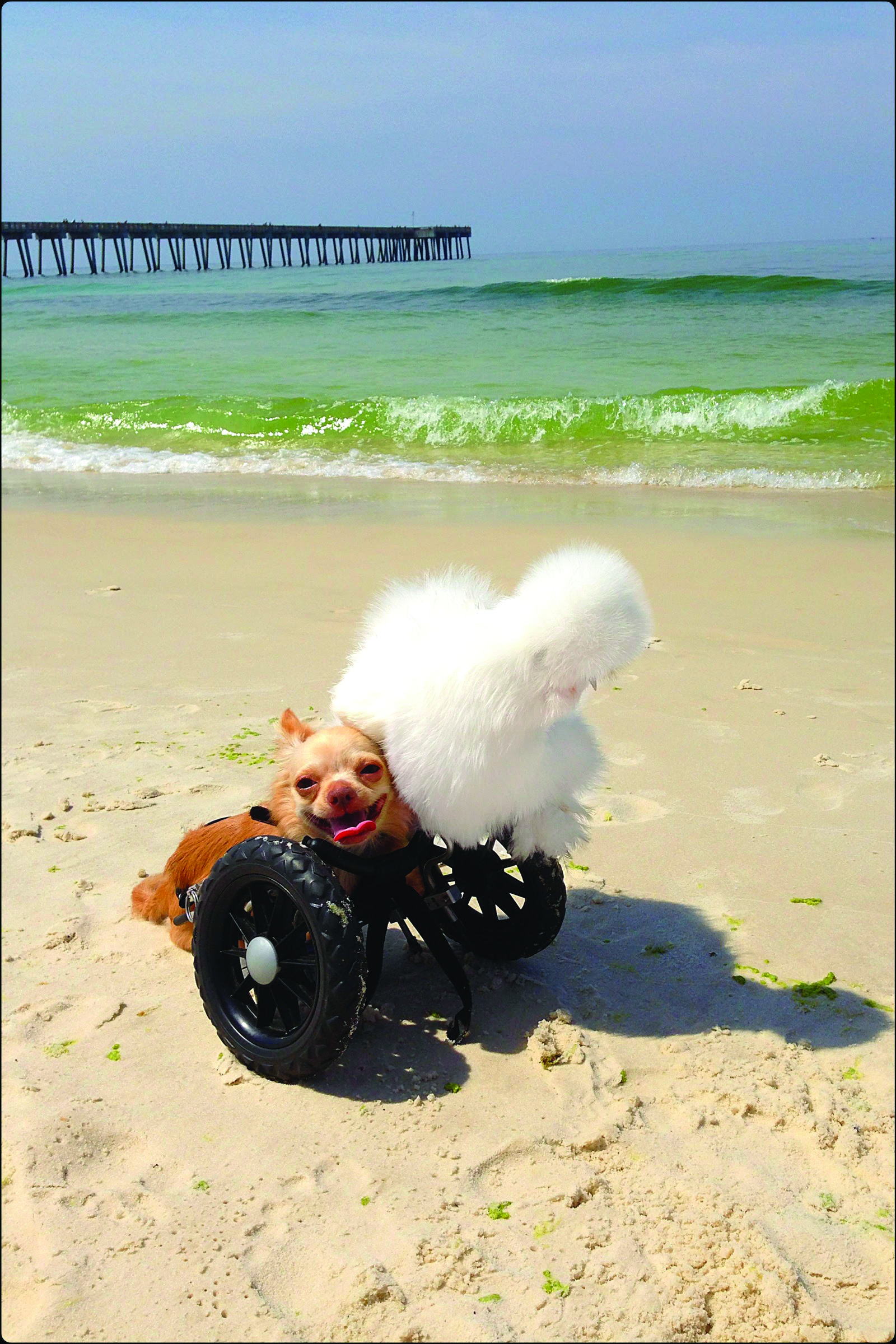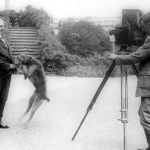
Photo © Alicia Williams, from Unlikely Friendships: Dogs
As the owner of three dogs, I spend plenty of time in the waiting room at the veterinary clinic. I see a lot of other dogs there, as you might expect. There are usually a couple of cats, too, tucked into crates, making their dissatisfaction heard.
What I’ve never seen at my vet’s office is a chicken. But at the Duluth Animal Hospital in Georgia, one chicken is a regular. Her name is Penny. At first glance, you might not know she is a chicken—she’s no chin-jutting barnyard clucker, but a precious ball of white fluff. A marshmallow. A shmoo. If you were to groom a white alpaca, you could make a Penny look-alike from what comes off the brush. The only real sign she’s a bird is a tiny beak poking out from what must be her head. Even her knobby little bird feet are tucked inside plush winter slippers. She’s really all feather and no peck.
Penny is a breed of chicken called a Silkie—the perfect name. Silkies originated in China but nowadays they are raised all over. They’re unique not just for their luxurious and soft plumage (which isn’t always white) but but for really weird hidden traits like black skin and bones and blue earlobes. (Really!)
Clearly, Penny isn’t your average bird, so I guess it shouldn’t be surprising that she chose an atypical best friend. Her BFF is Roo, a two-legged, two-wheeled Chihuahua. Roo was six weeks old when he was rescued from a drainage ditch and brought to the animal hospital. “One of our clients saw the grass moving and went to investigate; that’s the only reason Roo was discovered,” says Alicia Williams, who works in client services at the hospital. The little guy was missing his front legs (and some teeth); he appeared to have been born that way.
To Alicia, these genetic anomalies only added to his charm. She took Roo home that night and has been his loving mom ever since. Eventually, thanks to a generous benefactor who also fell in love with the little dog, Roo was outfitted with his own special wagon, which lets him wheel around at top speed. He’s had some knee issues since then, but after surgery and hydrotherapy (yes, the pampered Chihuahua does his exercises in a pool), he continues to get around just fine.
Alicia had adopted Penny not long before Roo, from a scientific laboratory. She knew nothing about chickens except that she wanted to save this one from its unhappy fate. And she never regretted her decision. “People often assume chickens aren’t intelligent, but she knows her name and comes running to me like a dog,” Alicia says. “She has favorite foods, favorite people.” Penny hadn’t gotten affection from people before Alicia came along, and it took a little time for her to learn trust, “but now she’ll sit on your lap, purr, and talk to you.”
The first interaction between Roo and the now-gregarious chicken was a good sign of the friendship to come. “I had set up a bed for Roo, and when I put him in it, Penny came over to check him out,” Alicia recalls. “He tried to play, pulling at her feathers, and she was tolerant. And then when he fell asleep, she climbed on top of him like he was her egg.”
Excerpt from Jennifer S. Holland’s Unlikely Friendships: Dogs (Workman Publishing, 2016).





No Comments